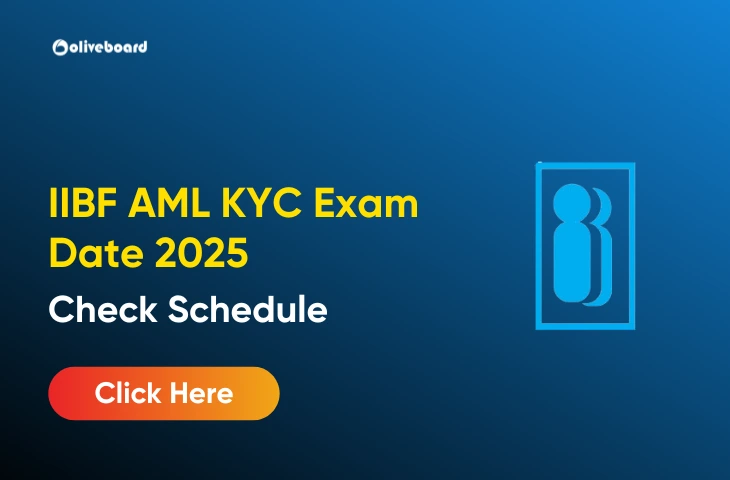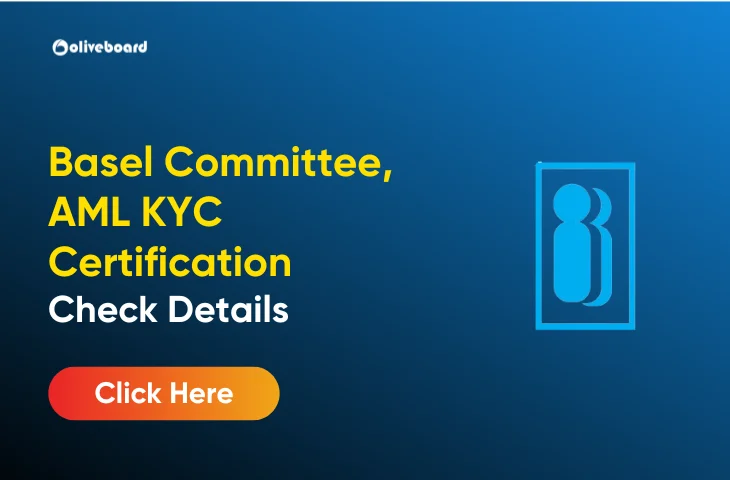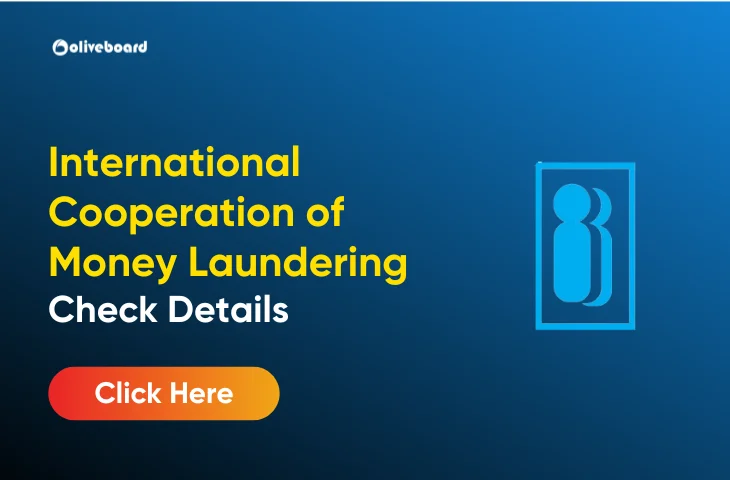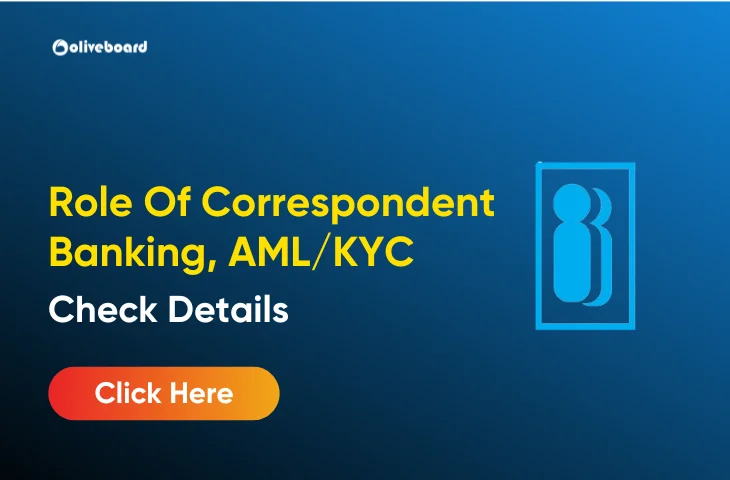Role of Correspondent Banking
Anti-Money Laundering (AML) and Know Your Customer (KYC) are essential practices in the financial industry to ensure compliance and prevent financial crimes. Correspondent banking plays a important role in global trade and finance, and its success depends heavily on strong AML KYC processes. This article will explain the role of correspondent banking and how AML KYC certification courses prepare professionals for this critical field.
AML and KYC
AML (Anti-Money Laundering): AML refers to the processes and regulations designed to stop criminals from disguising illegally obtained funds as legitimate income.
KYC (Know Your Customer): KYC ensures that financial institutions verify the identities of their customers to prevent fraud, money laundering, and other illegal activities.
What is Correspondent Banking?
Correspondent banking is when one bank provides services to another bank, usually in a different country. These services include:
- International Fund Transfers: Allowing money to move across borders.
- Currency Exchange: Converting one currency into another.
- Trade Finance: Supporting international trade transactions.
Role of Correspondent Banking
Correspondent banking helps the global economy in several ways:
- Connecting Banks Globally: It allows smaller banks to access services they cannot offer on their own.
- Facilitating Trade: Supports businesses in trading across countries by providing financial tools like Letters of Credit (LCs).
- Handling Cross-Border Payments: Ensures secure and reliable international money transfers.
- Reducing Risks: With proper AML KYC checks, it minimizes the risk of fraud and money laundering.
Why AML or KYC is Important in Correspondent Banking
Since correspondent banking operates internationally, it is at higher risk for illegal activities. AML or KYC processes help by:
- Blocking Financial Crimes: Identifying suspicious activities early.
- Increasing Transparency: Keeping records of all transactions.
- Ensuring Regulatory Compliance: Following global rules like those set by the Financial Action Task Force (FATF).
- Building Trust: Establishing secure and trustworthy relationships between banks.
AML/ KYC – Complete Course
The AML/KYC Complete Course offers over 30 live, interactive sessions that thoroughly cover the entire KYC AML syllabus, following the latest exam pattern. It includes 150+ multiple-choice questions (MCQs) and case studies to help you focus on key topics. You will also get downloadable PDF notes for easy learning and quick revision. The course provides a combination of live classes, recorded lectures, and PDF notes. For your convenience, live sessions are held during non-banking hours, either early in the morning or late in the evening. Additionally, you can access recorded lectures and PDF notes 24/7, allowing you to learn anytime and anywhere. Click the link below to check all the details regarding the AML KYC course.

What is an AML KYC Certification Course?
An AML KYC certification course trains professionals to follow compliance rules and identify financial crimes. These courses are designed for people working in banking, finance, and other related industries.
Topics Covered in AML KYC Certification
- Global AML regulations.
- Steps to verify customer identities.
- Techniques for assessing risks.
- Methods to monitor transactions.
- Special focus on compliance in correspondent banking.
Benefits of AML KYC Certification
- Career Growth: Helps professionals qualify for roles like compliance officer or risk manager.
- Better Understanding of Rules: Provides knowledge of international laws and standards.
- Practical Skills: Teaches real-world methods to fight financial crimes.
- Recognition: Certifications like CAMS (Certified Anti-Money Laundering Specialist) are recognized globally.
Common Challenges in Correspondent Banking
While correspondent banking is essential, it faces difficulties like:
- High Compliance Costs: Implementing AML KYC systems can be expensive.
- De-Risking: Banks may avoid relationships with high-risk countries.
- Data Security Issues: Ensuring safe sharing of customer data.
How AML KYC Certification Can Help
- Cost-Effective Compliance: Professionals can design systems that balance cost and effectiveness.
- Risk Reduction: Courses teach how to identify and manage risks better.
- Improved Cybersecurity: Training includes protecting sensitive data during transactions.
Comparing Popular AML KYC Certifications
| Certification Name | Provider | Key Focus Areas | Duration | Recognition |
| CAMS (Certified Anti-Money Laundering Specialist) | ACAMS | Global AML practices | 3-6 months | International |
| ICA International Diploma in AML | International Compliance Association | Advanced risk management | 6-9 months | Widely recognized globally |
| Certified AML KYC Officer | CIBFM | Practical AML and KYC scenarios | 2-3 months | Asia and Middle East |
Career Opportunities After AML KYC Certification
Earning an AML KYC certification can open doors to the following jobs:
- Compliance Officer: Ensuring an organization follows legal standards.
- Risk Analyst: Identifying and minimizing risks in transactions.
- AML Investigator: Tracking and reporting suspicious activities.
- Correspondent Banking Specialist: Managing compliance for international banking.
The Future of Correspondent Banking and AML KYC
As technology advances, AML KYC practices will continue to evolve. Financial institutions will rely on new tools to make compliance more effective.
Key Trends
- AI and Automation: Speeding up AML KYC processes with advanced technology.
- Blockchain Technology: Providing secure and transparent transaction records.
- Continuous Learning: Keeping professionals updated with the latest compliance rules.
| Related Article | Link |
| Money Laundering | Click here to Check |
| FIUS, AML KYC Certification | Click here to Check |
Conclusion
The role of correspondent banking is critical in the global financial system. However, it also comes with risks, making strong AML KYC compliance essential. By pursuing an AML KYC certification course, professionals can build a solid foundation to combat financial crimes, enhance their careers, and contribute to a more secure financial ecosystem.
Role Of Correspondent Banking – FAQs
Ans. AML KYC helps prevent illegal activities and builds trust between banks.
Ans. The CAMS certification is widely recognized and a great starting point.
Ans. Yes, it qualifies you for roles in compliance, risk management, and investigations.
- Legislation Against Money Laundering, AML KYC Certification

- IIBF AML KYC Exam Date 2025, Check Schedule

- IIBF AML KYC Certification, Check Complete Details and Benefits

- IIBF AML KYC Syllabus 2025, Check Exam Pattern

- Basel Committee, AML KYC Certification Course

- International Cooperation of Money Laundering, KYC AML


Hello there! I’m a dedicated Government Job aspirant turned passionate writer & content marketer. My blogs are a one-stop destination for accurate and comprehensive information on exams like Regulatory Bodies, Banking, SSC, State PSCs, and more. I’m on a mission to provide you with all the details you need, conveniently in one place. When I’m not writing and marketing, you’ll find me happily experimenting in the kitchen, cooking up delightful treats. Join me on this journey of knowledge and flavors!
